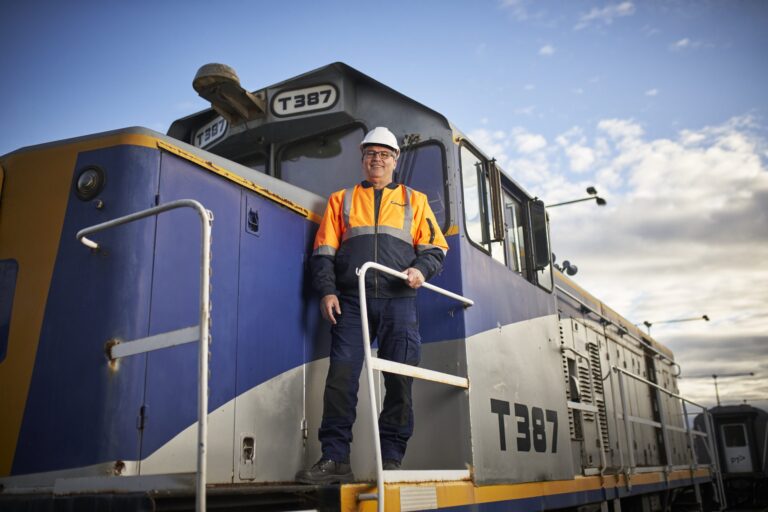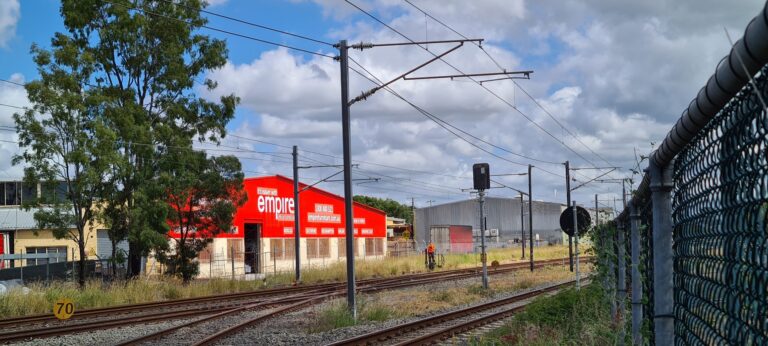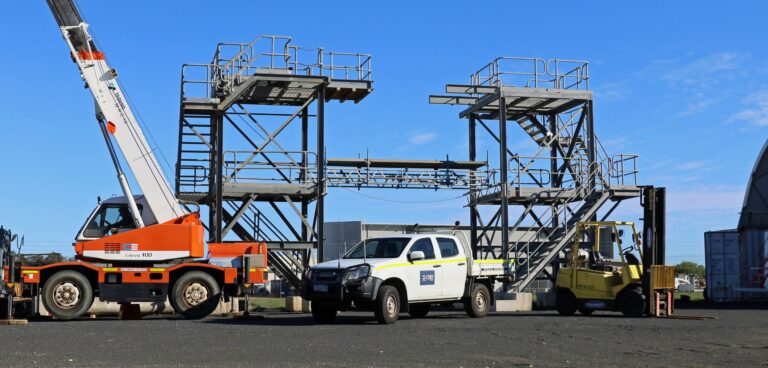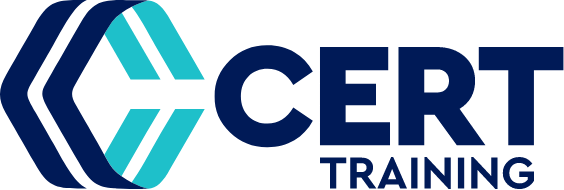How to Become a Train Driver in New South Wales
The latest data from the Australian human resource consulting company, SEEK, reveals train drivers earn an average annual salary from $110,000 to $130,000. This puts train drivers in Australia 58th on a salary rank of more than 1,000 occupations, outperforming school principals and dentists, and on par with GPs and pilots. Think you’re cut out for work on the railroads of New South Wales (NSW)? Browse our range of courses online to help you get the necessary qualifications, and check out this guide on how to become a train driver in NSW.
What it’s like to be a train driver in NSW?
Before you put the wheels in motion, it’s important to understand the unique responsibilities of being a or locomotive driver. With the NSW train network moving more than 1.3 million passengers per hour, there’s an enormous amount of responsibility involved. Customer safety is at the heart of everything you do, whether you’re managing high-pressure situations or remaining focused during your shift.
You’re engaging with cutting-edge train technology daily, which means the training program is rigorous and hands-on. Benefits include travelling all over the state and of course, an excellent salary. Not to mention the reward of connecting passengers with work, school and loved ones across the state.
How to become a train driver in Sydney, NSW?
Like studying to become a doctor, lawyer or engineer, working as a train driver is preceded by an intensive training process. Expect classroom learning and on-the-job training, as well as home study and exams. Training schedules are tight, meaning you’ll need to free up time on evenings and weekends. This is good training for the job, as NSW runs a complex train network that operates around the clock.
The Certificate IV in Train Driving is a general qualification for a person engaged in driving a train. Achievement of this qualification requires the application of a broad range of specialised knowledge and skills to undertake skilled work within a train driving environment.
This includes:
- Identifying, analysing, comparing and acting on information from a range of sources.
- Applying and communicating technical solutions of a non-routine or contingency nature to a defined range of predictable and unpredictable problems.
- Guiding activities and providing technical advice in the area of work.
As a train driver, whether passenger or freight trains, electric or diesel, you must be engaged in the rail industry by a rail operator, such as Pacific National, Aurizon, Sydney Trains, SCT Logistics or Qube.
Rail operators recruit and sign drivers up into a Traineeship where they attain the Certificate IV in Train Driving. The process works similar to an apprenticeship.
Street-to-Seat is an education-to-employment Rail Career Path Program initiative hosted by Momentum Rail (an industry skills supplier). As the rail industry’s most recognised training to employment driver program, Street-to-Seat develops Train Drivers and Train Drivers’ Assistants for rail industry operators. The Career Path Program requires you to successfully complete the relevant training to safely access Rail Operator worksites. Once qualified, you undertake hands-on-training before the option for employment is available.
You will need to respond to the recruitment strategies of the various rail companies who regularly recruit trainee drivers, guards and other rail-based callings. The industry is safety-critical and all drivers must be trained on a live network under supervision.
Train Driver Courses NSW
If you would like to pursue a career within the rail industry, you can start by completing one of the below required entry courses. This is the basic requirement employers necessitate for all workers in the industry, including train driving.
Entry Requirements to participate in a Train Driver Course in NSW, you must have at least a Category 1 Rail Medical.
Below are a few options to better prepare you for a career as a train driver. The Rail Operations Fundamentals Skill Set program will provide you entry points into the Certificate IV in Train Driving Qualification whilst you respond to and seek an appropriate position within a rail company.
Accessing the Rail Corridor Induction (TfNSW SX52)
Designed for workers operating within the Sydney metropolitan area network, this course empowers learners with the skills and knowledge to safely navigate the rail corridor. The focus is on key generic hazards and safety regulations.
You may also want to be better prepared for your career with:
Apply Safety Critical Communications in the Rail Environment
With a focus on leveraging communication and negotiation skills within the rail industry, this course is designed to teach safety critical behaviours. You’ll receive a nationally-recognised Statement of Attainment and leave with an in-depth understanding of safety crucial communications.
TLISS00224 Rail Operations Fundamentals Skill Set – CERT Training
This program is designed as an entry-level rail safety worker pathway to the TLI42622 – Certificate IV in Train Driving. It will equip you with the fundamental skills and understanding to further pursue your career as a train driver.
Ready to take the next step?
Get in touch with the friendly team at CERT Training NSW to find out more about the flexible, innovative and cost-effective solutions designed to help you step onto the New South Wales rail corridor.
Enrol Now and kick start your career rail.
To stay up to date about rail industry practices, key safety information and best practices, follow us on Facebook and LinkedIn.

How to Become a Train Driver in Victoria
Read on for a guide on how to become a train driver in Victoria, from the necessary qualifications and training to different career opportunities that await you on the tracks.

Why Queensland Rail Workers Should Get the WET Assessment
You might have heard of other Queensland Rail workers getting their WET assessment and wondered, what exactly is this? If you’re a rail worker…

High Risk Training
CERT delivers High Risk Training in Bunbury. The Centre for Excellence in Rail Training, trading as CERT Training, is a Registered Training Organisation (RTO)…
